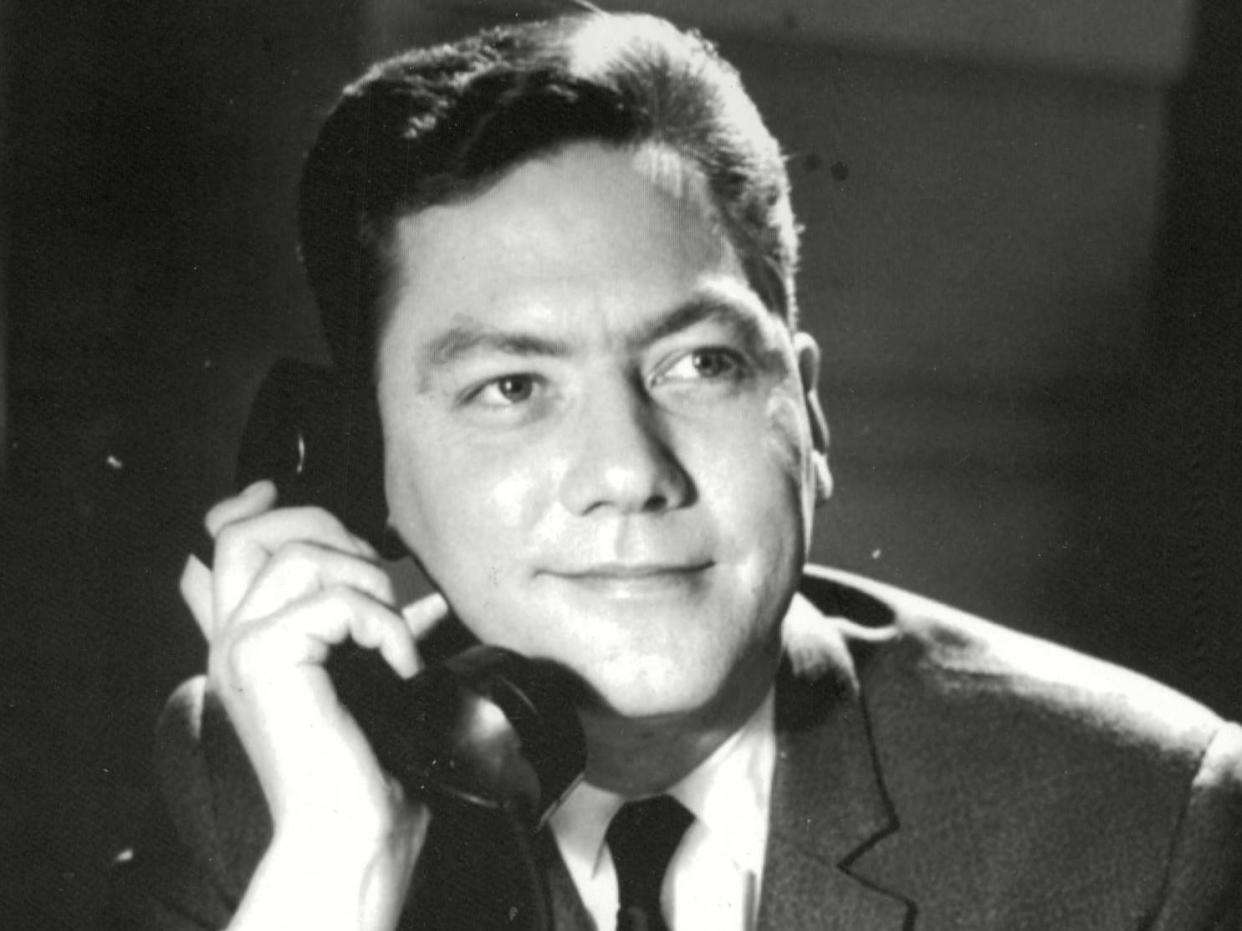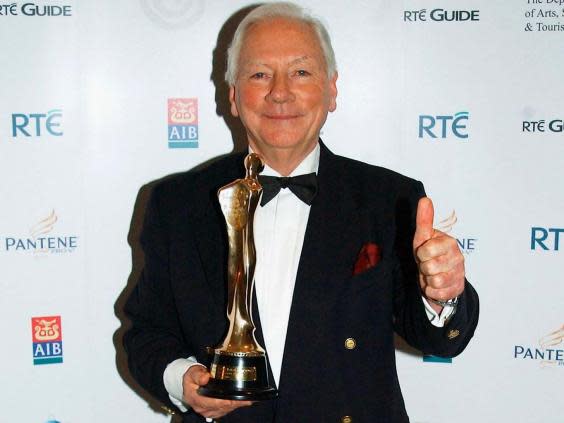Gay Byrne: Host of Ireland’s national TV institution The Late Late Show

Gay Byrne, who has died of cancer aged 85, was Ireland’s most famous and influential broadcaster, popular enough to be urged in 2011 to run for president (an idea he dismissed, saying he didn’t want to “give away” his life for the next seven years working “every hour of every day”).
The presenter of The Late Late Show for 37 years from its inception in 1962, Byrne made the show an institution on the Irish network RTE’s television channel. It not only featured showbiz celebrities but became a forum of debate that put issues of national importance – such as divorce, contraception, Aids, homosexuality, women’s rights and alcoholism – under the spotlight in a devoutly Catholic country. When this brought brickbats from the Irish establishment, Byrne – affectionately nicknamed “Gaybo” – seemed satisfied that he had done a good job and the programme’s viewing figures soared.
Although Catholic himself, he was keen to tackle the old taboos and encouraged his team of researchers to seek out stories illuminating the issues, but he presented them in an unsensational manner. In 1966 he was accused by the Bishop of Clonfert, in Galway, of being a “purveyor of filth” when, during a light-hearted quiz, he asked a couple about the colour of the wife’s honeymoon nightdress and was told by the husband that it was “transparent”, while she divulged that she had not worn one.
The Roman Catholic Church was further incensed five years later when Byrne interviewed a woman campaigning against the state’s strict anti-contraception laws – calling them “pretty damn weird” – and in 1985 when, despite court attempts to stop it, the programme featured a lesbian couple who were former nuns.
In 1993, a year after it was revealed that Bishop Eamonn Casey had fathered a child in 1973 with American divorcee Annie Murphy, she spoke about their affair in detail on The Late Late Show. However, Byrne was seen by many as being condescending to her, at a time when the bishop was still highly respected.
There was similar controversy when the programme turned to politics. In 1992, on a day when an IRA bus bomb killed seven Protestant workers in Co Tyrone, the British secretary of state for Northern Ireland, Peter Brooke, appeared on The Late Late Show, following an interview by singing “Oh My Darling Clementine”, telling of his darling being “lost and gone for ever”. Unionists were incensed and Brooke subsequently lost his ministerial job.
An appearance on the programme by Ireland’s EU commissioner in 1999 led to the end of another political figure’s career. MEP Padraig Flynn criticised Tom Gilmartin, a whistleblower who had revealed corruption in politics and business, then expounded at length about how difficult he found it to live on Ir£140,000 a year and having to maintain cars, three houses and housekeepers. Viewers regarded Flynn as out of touch and Gilmartin – watching the show on TV – subsequently gave evidence against Flynn.

Byrne was similarly a permanent fixture in people’s homes on RTE radio. The Gay Byrne Hour, later retitled The Gay Byrne Show – running from 1973 to 1998 – was Ireland’s first phone-in programme.
Gabriel Mary Byrne was born in Dublin in 1934 to Annie (nee Carroll) and Edward Byrne, who worked on the barges at the Guinness brewery. He was educated at the Christian Brothers’ Synge Street School before joining the Royal Insurance Company and, after a brief spell in cinema management, the Guardian Insurance Company.
Byrne achieved his ambition to get into broadcasting when in 1958 he joined Radio Eireann as a continuity announcer and presenter. His talent was spotted by English broadcasters and he worked for the ITV company Granada Television on its regional news magazine – becoming the first person to present The Beatles on screen, in 1962 – and, between 1962 and 1968, hosted various radio shows for the BBC featuring pop and dance-band music.
After giving up his Irish TV and radio shows and retiring in his mid-sixties, Byrne made occasional returns to television, presenting the Irish version of Who Wants to Be a Millionaire (2000-02) and the interview series The Meaning of Life (2009-16). He was also chair of Ireland’s Road Safety Authority from 2006 to 2014.
From 2006 he also hosted his own Sunday afternoon radio show featuring jazz music on Lyric FM, giving it up in January 2017, several months after being diagnosed with prostate cancer. His autobiography, The Time of My Life, was published in 1989.
He is survived by his wife, Kathleen (nee Watkins), and two adopted daughters, Crona and Suzy.
Gay Byrne, broadcaster, born 5 August 1934, died 4 November 2019
Read more
Peter Sissons: TV news presenter with unflappable onscreen authority

 Yahoo News
Yahoo News 
